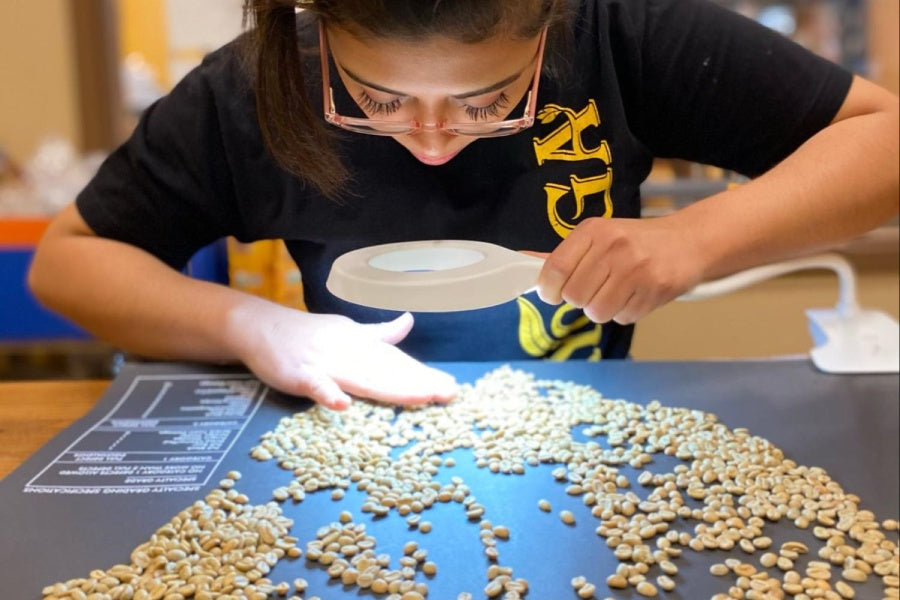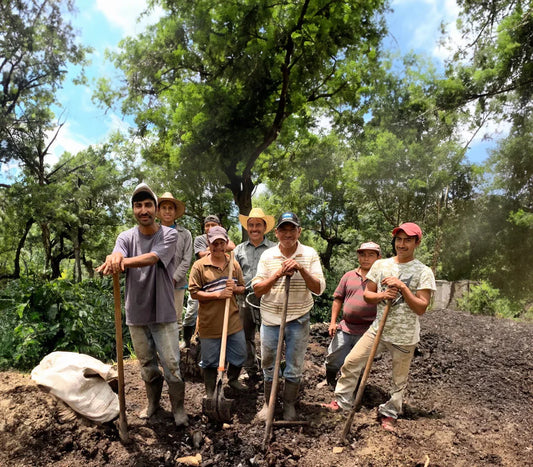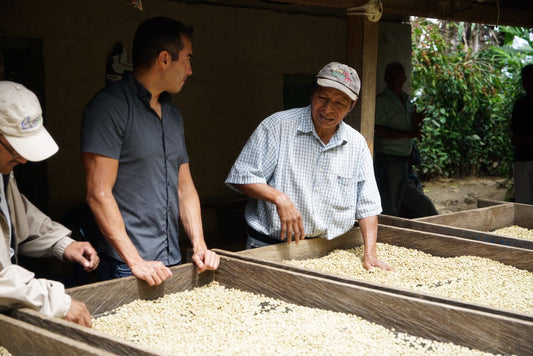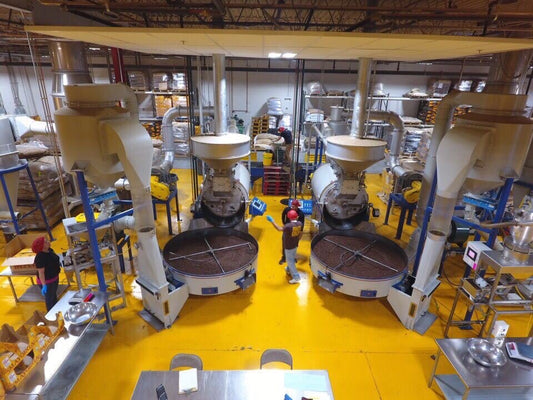
Does Coffee Contain Toxins?
A food safety expert discusses the relationship between mold, mycotoxins, and the coffee in your kitchen cupboard.
The coffee industry is brimming with marketing buzzwords. But ones that have increasingly triggered alarm bells are in relation to “mold” and “mycotoxins”.
Table of Contents
Mold, as I am sure we have all experienced at some point, can grow on meat, dairy products, veggies, and even nuts. Mycotoxins are the toxic compounds that molds produce.
The Food and Agriculture Organization of the United Nations (FAO) estimates that around a quarter of the world’s food crops are affected by mold and mycotoxins.
Given the right conditions, mold can grow just about anywhere – so why is it now such a hot topic when it comes to coffee? Many have suggested that it is nothing more than marketing scare tactics.
But marketing lingo aside, there is a complex relationship between mold, mycotoxins, and coffee, which is important to understand.
To get started, Mayorga Coffee’s food safety and compliance scientist, Beatriz Garay, explains a few often-used terms.
Moisture content vs water activity (aW)
Moisture content is the amount of water locked inside something, such as a coffee bean. Water activity refers to how likely it is that the locked-in water will contribute to creating the conditions for something to occur – in this case, mold to grow.
Mold
This refers to any number of species of multicellular fungus that favors dark, damp conditions. Mold is found across the globe and is usually invisible to the naked eye unless it has grown into a large colony.
Mycotoxins
Mycotoxins are compounds produced by mold. It typically grows on foods such as nuts, spices, cereals, and grains. It can cause serious illness if ingested in large quantities.
Ochratoxin A (OTA)
OTA is a type of mycotoxin that specifically affects green coffee.
Limit of Detection (LOD) / Limit of Quantification (LOQ)
This refers to the lowest concentration level of a substance that can be reliably detected and quantified by a given test.

Can mold and mycotoxins affect my coffee?
Now on to the big question: Can mold affect coffee? And if so, is it dangerous?
The short answer is that it is highly unlikely.
To start with, green coffee has a relatively low moisture content (around 11%) and low water activity. As such, mold and mycotoxins have limited opportunities to grow and develop.
The World Health Organization (WHO) and FAO work in tandem to set limits for acceptable mycotoxins in foods. The limit for mycotoxin contamination is set very low considering the severity of its toxicity. However, even then, coffee’s mycotoxin levels don’t even come close to being dangerous.
For example, a European study, which looked at 633 coffee brands for levels of mycotoxins, found that 75% of the coffees had “undetectable levels”. The other 25% contained such small levels that you would need to drink four cups per day for a week to get to just 2% of the exposure levels deemed unsafe.
In addition, coffee farmers are paid, in part, based on the physical quality or grade of their coffee. Defects such as insect damage and mold decrease the grade a coffee is given. As such, it is in farmers’ best interest to produce the highest-quality product possible.
Almost all specialty-grade, fresh crop-washed coffees are free of mold and therefore mycotoxins.
Is specialty-grade coffee safer than commodity-grade coffee?
The issue of mycotoxins in coffee is not a new one and growers have developed methods for processing their coffees to reduce the conditions in which mold can grow on green coffees.
Even if you are consuming commodity-grade coffee, the risk of contamination is far below the minimum levels set by health agencies.
That being said, there is a very small chance that, given the right (or wrong) conditions depending on how you look at it, mold can grow on coffee beans.
These risks can be prevented if adequate processing techniques, as well as correct drying, storage and transportation processes, are adhered to.
The key to mitigating these risks as a coffee company is to know who your suppliers are and to build strong relationships with them. In addition, it is also important to provide them with any technical assistance if needed and to implement a robust quality and/or safety program to maintain quality standards along the supply chain.
Like many other coffee companies that advertise having their green coffees tested for mold and mycotoxins, we also have our coffees tested.
These tests are performed by an accredited third-party lab every quarter.
So then why don’t we advertise that our coffee is mold free, too? Because that would be a misrepresentation of the data provided by the labs.
Currently, the laboratory tests used to detect the presence of mycotoxins are not sensitive enough to completely rule out the possibility of some mold. This is where the term LOD/LOQ comes into play…
A test that is sensitive enough to unequivocally show that there is zero mold and/or mycotoxin spores present in a sample simply does not exist.
Just about everyone in the industry who roasts their coffee utilized these same quality tests. It isn’t a unique practice. It is just one of many tools a company can use to ensure they are putting forth safe coffee.
At Mayorga Coffee, we prefer not to use marketing tricks or fear-mongering when it comes to talking about our coffees.
Instead, we rely on being transparent in who we are as a company, what we stand for and the relationships we have built with our farming partners over the past 22 years.
We focus on organic practices, on-the-ground direct relationships with our producers, and expedited logistics that all work to reduce the risk of contamination.
So even though we don’t have “Mold Free” emblazoned across our website, you can rest assured that your morning coffee is good, clean, and organic.


